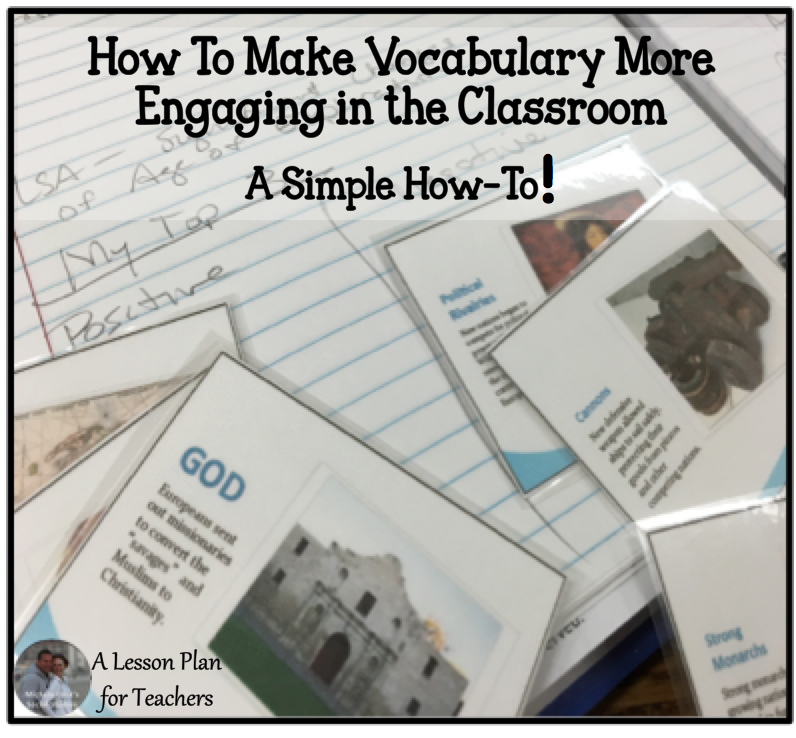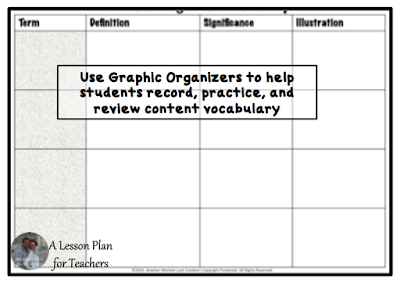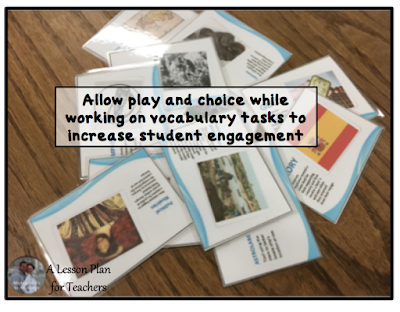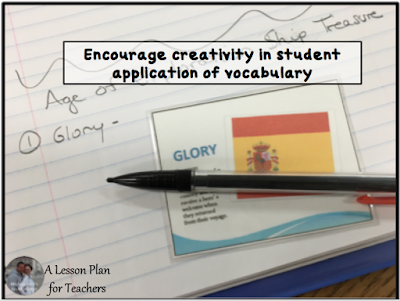Teaching vocabulary is vital for the secondary content-area classroom, but the task can also be the most boring activity students must endure. Change that up with this simple how-to!

- Make learning vocabulary an event in your classroom rather than a start-of-unit menial task. Allow adequate time for the event, and give it the same emphasis as any other activity in your class lessons.
- Do a scavenger hunt, allowing students to find and define terms.
- Play a matching game with terms and definitions, creating some competition in the task.
- Set up an archeology dig where students gather the information to fit the lesson.
- Allow students choice in how they will learn or process vocabulary. Working in pairs or small groups can help students define and examine the connotation of terms, while also discussing the terms for reinforcement.
- Use Think-Research-Share activities to step students through the vocabulary process.
- Hold “salon” gatherings or connotation readings for added engagement.
- Add an element of controversy to prompt discussion of critical events.
- Provide graphic organizers or other handouts to help students record definitions. Add a visual element to help students imprint the content in their brains for later reference.

- Encourage creativity in the process and application stage of vocabulary learning. This requires additional thinking and builds retention.
- Let students write poems, draw pictures, or sing songs to learn vocabulary or to learn its appropriate application.
- Make the review of vocabulary a whole class activity and make it fun. Allow students to perform skits, play Pictionary, or play charades for added practice and added fun.


Teaching vocabulary does not have to be a boring task. It can be as engaging and fun as you take the time to make it! Just remember, the more time you take to make the activity engaging and fun, the more your students will process and retain!
*My Age of Exploration Sunken Ship Activity is shown in this post. Students gather vocabulary cards from the sunken ship to collect information on the Age of Exploration and the changes leading into modern times.

Happy Teaching!